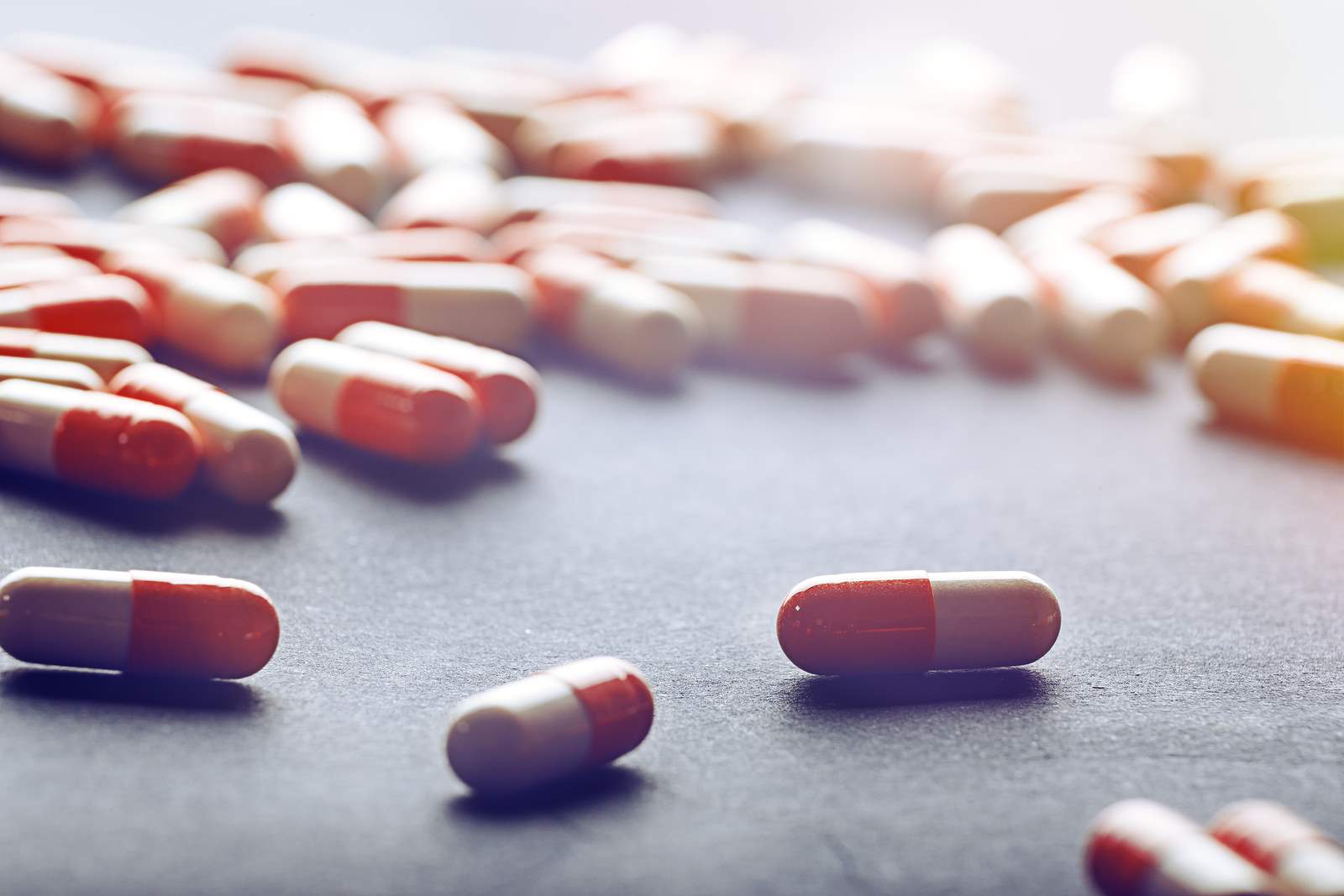For a few years now, news about Risperdal and their potentially harmful side effects have been popping up in the news. Recently the drug Invega, which is similar to Risperdal, began receiving similar attention for its harmful effects, mostly in children. To make matters worse, it has been revealed the makers may have known and were working to cover it up.
Both Risperdal and Invega are powerful antipsychotics used to treat schizophrenia in adolescents and adults. The drugs have also been prescribed “off label”—meaning the medication is being used in a manner not specified in the FDA’s approved packaging label—to treat attention deficit hyperactivity disorder (ADHD), anxiety, insomnia, and depression.
Risperdal and Invega are sold by the massive chemical company, Johnson & Johnson.
Although Risperdal and Invega are not the exact same thing—one is risperidone and the other palperidone—they do have similar physiological effect with differences in the way they metabolize within the body. Invega is found to have similar side Effects as Risperdal.
Invega Side Effects
Risperdal was approved for use in children in 2006 by the FDA to treat autism and bipolar disorder. When the drug was cleared for this use, the side effects in children were not well known. Invega, Risperdal’s sister drug, has also been linked to the same harmful side effects.
Those side effects include:
- Male breast growth, gynecomastia, man boobs
- Painful breasts
- Nipple pain
- Nipple discharge
These side effects—known commonly as male breast growth, medically as gynecomastia, and in common slang as “man boobs”—are an embarrassing condition that can sometimes cause pain and likely require surgery to correct. These negative effects mostly harm young males, creating not only physical problems but obvious psychological trauma as well.
In addition to gynecomastia, Risperdal and Invega have been known to also cause movement disorders, diabetes, pituitary tumors, and heart problems that can lead to death.
How it happens
Invega and Risperdal work by blocking dopamine receptors. Although most people are familiar with the more ‘popular’ things that dopamine does (like playing a role in addiction, lust, happiness, etc.), the neurotransmitter also handles hundreds of other tasks. One of those tasks is to block the production of prolactin, a hormone made by the pituitary gland. Because Risperdal and Invega are blocking the reception of the dopamine, it allows more prolactin to go uninhibited.
The painful condition can also affect young females who are not pregnant.
As prolactin levels are elevated—which are normally at very low levels in men—gynecomastia develops. When Risperdal or Invega causes gynecomastia in men and boys, their ‘breasts‘ might even begin to produce a milky white discharge.
Statistics
Hyperprolactinemia (excess production of prolactin) occurs more often with Risperdal than with other antipsychotics. According to a study by the New Zealand Medicines and Medical Devices Safety Authority, more than 90% of those taking the drug had elevated levels of prolactin.
In clinical trials involving 1,885 children and adolescents taking Risperdal, 43 boys experienced gynecomastia. Since the FDA approved the drug for use in children, hundreds of boys have developed breasts while on the medication. According to Forbes, breasts as large as “D” cups were reported in some cases.
Contrary to what some may think, weight loss will not resolve the issue of enlarged man boobs. This is because the increase in breast size includes not only fatty tissue (which makes up a majority of breasts’ structure) but glandular tissue as well. With such a high concentration of dense tissue, surgery is the only option to reduce the breasts’ size.
Besides gynecomastia, the drug also leads to the absence of periods in females and a delay in growth and maturation in both sexes. Because Invega is a derivative of Risperdal, it has similar effects on hormones.
Invega side effects in children may also include painful movement disorders such as tardive dyskinesia, which causes involuntary movements of the tongue, lips, face, torso, and extremities. Another movement disorder called dystonia causes the patient to make uncontrollable sounds.
Invega has also been linked to Type 2 diabetes, high blood sugar, and rapid heart rate.
However, the most common side effect is weight gain, with most patients gaining 4.6 pounds in just a 10-week treatment.
Additionally, Risperdal and Invega cause:
- Abdominal pain
- Akathisia (restlessness)
- Anxiety
- Dizziness
- Drooling
- Fatigue
- Insomnia
- Nausea
- Priapism (prolonged penile erection)
- Sedation
- Somnolence
- Tremors
- Vomiting
While not all these symptoms are serious, some can begin to compound other issues, like weight gain making the risk of diabetes even greater. Furthermore, no young male student wants to deal with uncontrollable priapism more than they already have to.
Lawsuits
Recently, hundreds of lawsuits have been filed alleging that Risperdal increases breast tissue growth in young boys. Invega makers have also faced similar lawsuits for failing to warn patients about this potential side effect.
Johnson & Johnson has already lost several of the lawsuits filed by the U.S. government and individual consumers. One of the personal injury cases against Risperdal was filed by the family of an Alabama man who grew size 46DD breasts, allegedly due to his use of Risperdal to treat his autism as a child.
(Note that this is not the first time Johnson & Johnson has been sued for harmful products.)
Johnson & Johnson has already paid billions of dollars in fines over its marketing of Risperdal and Invega, which mostly focus on claims that the drug manufacturer concealed the side effects of the drugs, among other allegations.
In 2013, J&J agreed to pay more than $2.2 billion in criminal and civil fines to settle accusations by the U.S. Justice Department that it improperly promoted Risperdal and Invega to children, older adults, and people with developmental disabilities.
The latest Risperdal settlement occurred in March 2015. This case was filed because a young man with autism was prescribed Risperdal for five years as a child. He began taking the drug at only 8 years old. At the time, Risperdal wasn’t yet approved by the FDA for children. Additionally, its label claimed that the risk was “low” for gynecomastia. The jury ordered Johnson & Johnson and Janssen (J&J’s pharmaceutical branch) to pay $2.5 million in damages.
As of today, nearly 1,300 Risperdal lawsuits are pending against J&J and Janssen. Almost all of these cases allege personal injuries related to gynecomastia caused by Risperdal side effects.
Effects on young patients
In 2012, the first private lawsuit was settled against Risperdal. The 21-year-old male plaintiff alleged that Risperdal‘s side effects caused him severe psychological trauma from the male breast growth he experienced. He was even forced him to undergo gynecomastia surgery (basically breast reduction surgery) to get rid of his so-called man boobs.
As one can probably imagine, life is hard enough for the young patients prescribed Risperdal and Invega. If they had a need for the medication, then it is likely that they were already suffering from serious issues like schizophrenia, depression, or autism. Forming such an embarrassing condition as a side effect would surely only compound these mental issues.
As everyone who has ever been young remembers, kids can be quite mean to their peers. Imagine being a young boy in middle school—already facing mental health difficulties—and you begin to develop breasts.
As mentioned before, some of these cases were not just a slight swelling of the pectoral area. Some of these young people actually developed very large, very obvious breasts.
Some of these young boys who developed breasts as a result of Risperdal began to suffer severe psychological trauma. It’s perfectly understandable. As a result, many doctors began recommending that adolescents undergo surgery to remove the breasts. But a simple remove of the tissue does not remove the emotional and psychological scars the issue caused.
This is why people are suing Johnson & Johnson. With better testing, more warnings, and a transparency about the risks, maybe fewer people would have allowed their children to be prescribed such a potentially harmful medication.
These families were in a delicate position. They were seeking medical help for their child who was suffering from mental health issues. With that being the case, it is understandable that they trusted the doctor to prescribe something that was going to help.
Although most people do not think of defective medications (or medical devices) as being an issue of product liability, this is the general area of law it falls under. Sometimes, bad drugs can be the worst of these cases since they are taken regularly, affect the chemistry of the body, and are recommended by trusted members of the community.
It is the responsibility of pharmaceutical makers to be as transparent as possible when promoting and labeling their products. It is clear that people are in a vulnerable position anytime they are seeking medication or treatment, and it is the responsibility of the doctors and drug makers to see to it that this vulnerability is not exploited.
Dolman Law Group Accident Injury Lawyers, PA
Dolman Law Group is a Clearwater-based serious injury and civil trial law firm. Our injury law attorneys have represented a long list of individuals who have suffered critical and/or fatal injuries as a result of defective or misrepresented pharmaceuticals.
We have a trusted reputation for our experience in handling cases effectively and professionally while providing our clients with a personal touch that very few firms offer anymore.
If you are interested in learning more about our credentials and experienced attorneys, please visit our website. Additionally, please view our defective and bad medication section to read more about the types of cases we handle and what we can do for you.
We want you to know that it is our unwavering goal to prosecute those responsible for releasing these hazardous medications to our children and families; especially when these companies were aware of the potential dangers and released them anyway.
If you or a loved one has suffered serious injury or death as a result of harmful prescription medications, call the Dolman Law Group Accident Injury Lawyers, PA for a free consultation at (833) 606-DRUG [3784].
800 North Belcher Road
Clearwater, FL 33765
(833) 606-DRUG [3784]






